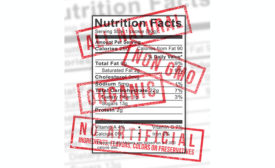Articles by Brett Schwemer
Regulations & Legislation
Should your establishment appeal a FSIS decision?
To appeal or not to appeal; that is the question
Read More
Regulations & Legislation
FSIS increases communication of sampling results
FSIS plans to provide establishments more detailed information through quarterly letters.
Read More
Regulations & Legislation
FSIS targets foreign-material response
Agency begins scrutiny of industry’s handling of foreign-material complaints/findings.
Read More
Stay ahead of the curve. Unlock a dose of cutting-edge insights.
Receive our premium content directly to your inbox.
SIGN-UP TODAYCopyright ©2025. All Rights Reserved BNP Media.
Design, CMS, Hosting & Web Development :: ePublishing










